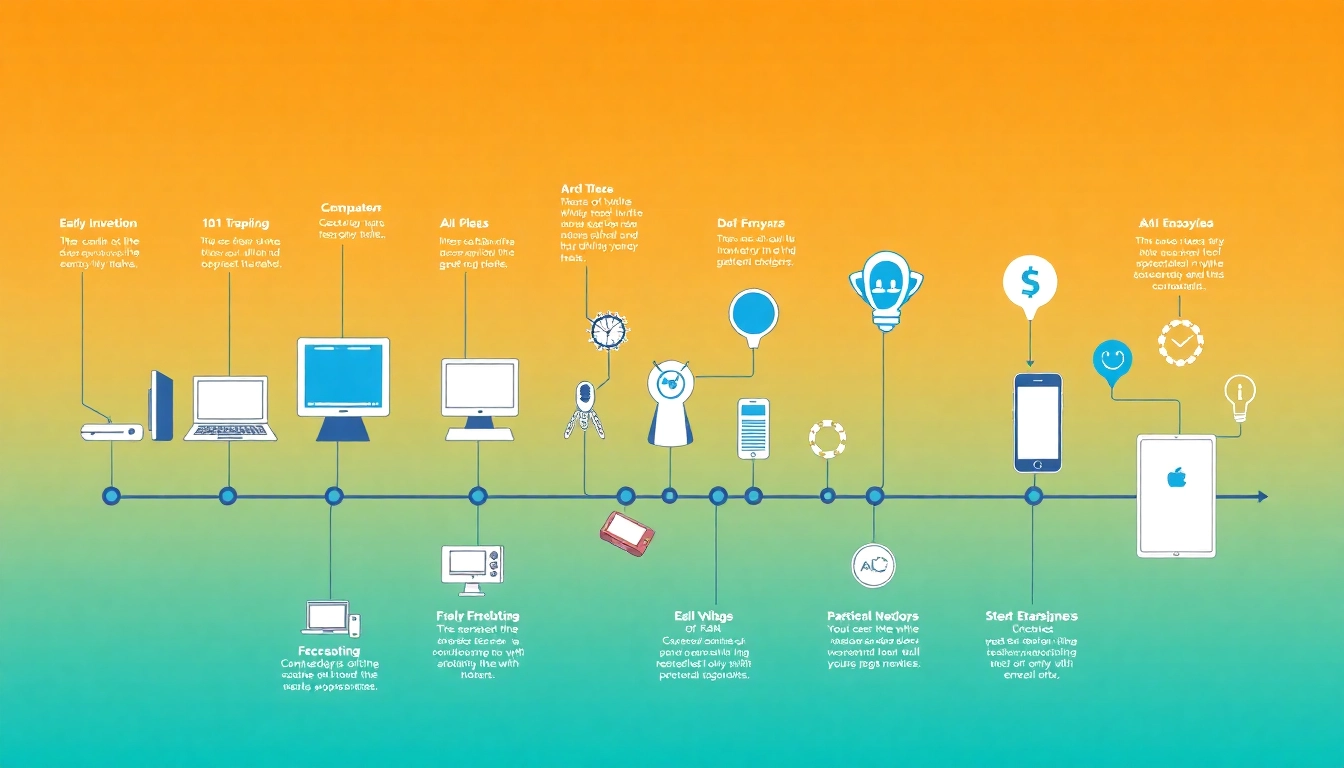In today’s rapidly evolving world, technology stands at the forefront of societal progress, transforming how we work, communicate, and live. From the dawn of human history to the digital age, technological innovation has shaped civilizations, driven economic growth, and opened new frontiers. Understanding what technology is, how it has evolved, and where it’s heading is essential for anyone interested in the future of our world. This comprehensive guide explores the depths of technology, its categories, societal impacts, and the emerging trends that will define tomorrow.
What Exactly Is Technology and How Has It Evolved Over Time?
The Evolution of Technology Through History
Technology encompasses the tools, techniques, and systems humans create to solve problems and improve life. Its history dates back to the earliest stone tools used by our ancestors over 2 million years ago. The Agricultural Revolution introduced farming tools, setting the stage for settled societies. The Industrial Revolution in the 18th century marked a major milestone, with innovations like the steam engine revolutionizing manufacturing and transport. Today, we are in the midst of a digital revolution, driven by advancements in computers, the internet, and mobile technology.
Throughout history, technology has evolved from simple implements to complex systems. Key moments include the invention of the printing press, electricity, the telephone, and, more recently, the rise of the internet and artificial intelligence. These innovations have accelerated societal change, creating new industries and transforming existing ones.
Key Components of Modern Technology
- Hardware: Physical devices such as computers, smartphones, and IoT gadgets.
- Software: Programs and applications that run on hardware, enabling functionalities.
- Networks: Infrastructure that connects devices, including the internet and wireless systems.
- Data: Information processed and analyzed to derive insights and inform decisions.
How Technology Shapes Our Lives Today
Modern technology influences nearly every aspect of daily life—from communication and entertainment to healthcare and transportation. Digital devices keep us connected, while innovations like cloud computing and big data enhance productivity. The proliferation of smartphones has democratized access to information, fostering a more informed and connected society. Simultaneously, technology-driven solutions are addressing critical issues like climate change, health crises, and resource management.
Types of Technology: Categories and Examples
Information and Communication Technologies (ICT)
ICT refers to technologies that facilitate communication and the management of information. Examples include the internet, mobile networks, social media platforms, and cloud services. These tools have revolutionized how people share ideas, conduct business, and access information worldwide.
Biotechnology and Healthcare Technologies
This category encompasses innovations like gene editing (CRISPR), telemedicine, wearable health monitors, and advanced diagnostics. They improve health outcomes, extend life expectancy, and enable personalized medicine.
Manufacturing and Industrial Technologies
Modern manufacturing relies on automation, robotics, 3D printing, and IoT sensors to increase efficiency and precision. These emerging technologies support Industry 4.0, leading to smarter factories and sustainable production methods.
The Impact of Technology on Society and the Environment
Economic Growth and Job Creation
Technology drives economic development by creating new industries and job opportunities. The tech industry itself is a significant employer, with roles spanning software development, data analysis, cybersecurity, and more. Digital transformation enables businesses to operate more efficiently and reach global markets.
Ethical Considerations and Challenges
Rapid technological advances raise ethical questions around privacy, data security, and AI biases. Responsible innovation requires balancing progress with societal values and human rights.
Environmental Impacts and Sustainability
While technology can reduce resource consumption and enable renewable energy solutions, it also poses environmental risks like e-waste and increased energy demands. Sustainable tech practices are crucial to minimizing ecological footprints.
Future Trends Shaping the Tech Industry
Artificial Intelligence and Machine Learning
AI development continues to accelerate, powering applications like virtual assistants, predictive analytics, and autonomous vehicles. Future AI will likely become more sophisticated, capable of complex reasoning and creativity.
Quantum Computing and Blockchain
Quantum computers promise exponential processing power, revolutionizing fields like cryptography and drug discovery. Blockchain technology offers secure, transparent digital transactions, impacting finance, supply chains, and voting systems.
Emerging Technologies to Watch
- Extended Reality (XR): Virtual, augmented, and mixed reality for immersive experiences.
- Edge Computing: Processing data closer to devices for faster responses.
- Nanotechnology: Manipulating matter at atomic scales for breakthroughs in materials and medicine.
- Renewable Energy Tech: Innovations in solar, wind, and battery storage to combat climate change.
Frequently Asked Questions About Technology
1. What are the latest technological innovations?
Recent innovations include AI-powered chatbots, 5G networks, foldable smartphones, and advancements in renewable energy tech. Emerging fields like quantum computing and biotech are also gaining momentum.
2. How does technology influence daily life?
Technology impacts daily life through instant communication, online shopping, remote work, and entertainment. It has made information more accessible and simplified many routines.
3. What skills are needed for future tech careers?
Key skills include programming, data analysis, cybersecurity, AI and machine learning expertise, and adaptability to new tools and platforms.
4. How can individuals adapt to rapid technological change?
Stay curious, pursue continuous learning through courses and certifications, and keep abreast of industry news. Networking with professionals and participating in tech communities also help.
5. What are potential risks of emerging technologies?
Risks include privacy breaches, job displacement, ethical dilemmas, and unintended consequences like AI misuse. Responsible development and regulation are essential to mitigate these issues.
Conclusion
Understanding the multifaceted nature of technology—from its rich history to its transformative future—is vital in today’s interconnected world. As emerging technologies continue to evolve, staying informed and adaptable will empower individuals and organizations to harness their full potential responsibly. To explore more about the latest innovations, insights, and trends in the tech industry, visit TechDee. Embracing technological progress with awareness and ethical considerations will shape a sustainable and prosperous future for all.




